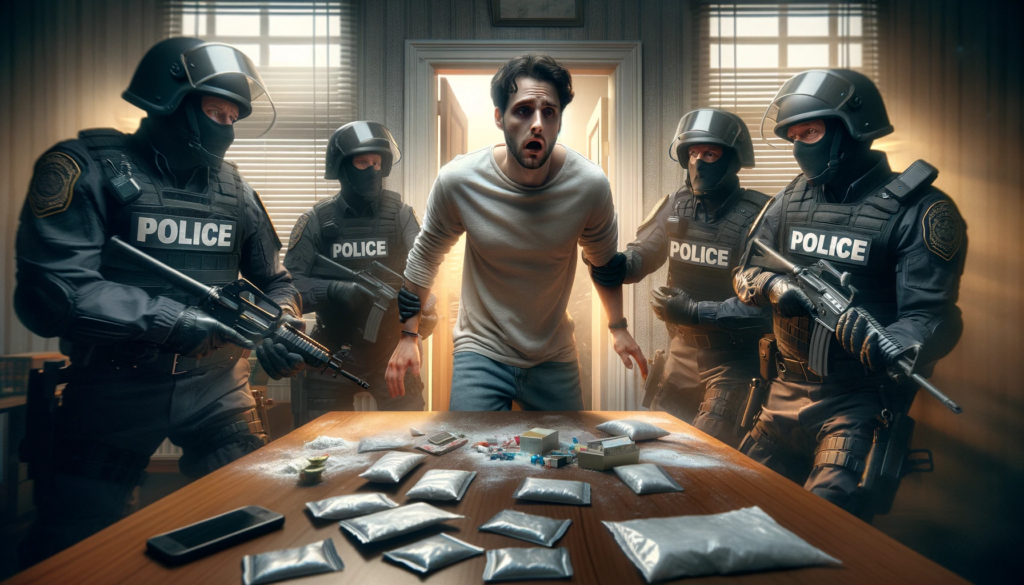Table of Contents
Understanding Minnesota’s First Degree Controlled Substance Crimes: A Duluth Attorney’s Guide
Facing a first degree controlled substance crime charge in Minnesota is a serious matter with potentially life-altering consequences. It’s crucial to understand the specific provisions of Minnesota Statute 152.021 to fully grasp the charges against you and explore potential defense strategies. This article, provided by a Duluth criminal defense attorney, aims to clarify the statute’s key elements and highlight the importance of seeking legal counsel.

The Language of the Law: Minnesota’s First Degree Drug Law
The full text of the law, which can be found below, comes from MINN. STAT 152.021:
152.021 CONTROLLED SUBSTANCE CRIME IN THE FIRST DEGREE.
Subdivision 1. Sale crimes.
A person is guilty of controlled substance crime in the first degree if:
(1) on one or more occasions within a 90-day period the person unlawfully sells one or more mixtures of a total weight of 17 grams or more containing cocaine or methamphetamine;
(2) on one or more occasions within a 90-day period the person unlawfully sells one or more mixtures of a total weight of ten grams or more containing cocaine or methamphetamine and:
(i) the person or an accomplice possesses on their person or within immediate reach, or uses, whether by brandishing, displaying, threatening with, or otherwise employing, a firearm; or
(ii) the offense involves two aggravating factors;
(3) on one or more occasions within a 90-day period the person unlawfully sells one or more mixtures of a total weight of ten grams or more, or 40 dosage units or more, containing heroin or fentanyl;
(4) on one or more occasions within a 90-day period the person unlawfully sells one or more mixtures of a total weight of 50 grams or more containing a narcotic drug other than cocaine, heroin, fentanyl, or methamphetamine; or
(5) on one or more occasions within a 90-day period the person unlawfully sells one or more mixtures of a total weight of 50 grams or more containing amphetamine, phencyclidine, or hallucinogen or, if the controlled substance is packaged in dosage units, equaling 200 or more dosage units.
Subd. 2. Possession crimes.
(a) A person is guilty of a controlled substance crime in the first degree if:
(1) the person unlawfully possesses one or more mixtures of a total weight of 50 grams or more containing cocaine or methamphetamine;
(2) the person unlawfully possesses one or more mixtures of a total weight of 25 grams or more containing cocaine or methamphetamine and:
(i) the person or an accomplice possesses on their person or within immediate reach, or uses, whether by brandishing, displaying, threatening with, or otherwise employing, a firearm; or
(ii) the offense involves two aggravating factors;
(3) the person unlawfully possesses one or more mixtures of a total weight of 25 grams or more, or 100 dosage units or more, containing heroin or fentanyl;
(4) the person unlawfully possesses one or more mixtures of a total weight of 500 grams or more containing a narcotic drug other than cocaine, heroin, fentanyl, or methamphetamine;
(5) the person unlawfully possesses one or more mixtures of a total weight of 500 grams or more containing amphetamine, phencyclidine, or hallucinogen or, if the controlled substance is packaged in dosage units, equaling 500 or more dosage units; or
(6) the person unlawfully possesses:
(i) 50 kilograms or more of cannabis flower;
(ii) ten kilograms or more of cannabis concentrate; or
(iii) edible cannabis products, lower-potency hemp edibles, hemp-derived consumer products, or any combination of those infused with more than one kilogram of tetrahydrocannabinols.
(b) For the purposes of this subdivision, the weight of fluid used in a water pipe may not be considered in measuring the weight of a mixture except in cases where the mixture contains four or more fluid ounces of fluid.
Subd. 2a. Methamphetamine manufacture crime.
Notwithstanding subdivision 1, sections 152.022, subdivision 1, 152.023, subdivision 1, and 152.024, subdivision 1, a person is guilty of controlled substance crime in the first degree if the person manufactures any amount of methamphetamine.
Subd. 2b. Aggravated controlled substance crime in the first degree.
A person is guilty of aggravated controlled substance crime in the first degree if the person violates subdivision 1, clause (1), (2), (3), (4), or (5), or subdivision 2, paragraph (a), clause (1), (2), or (3), and the person or an accomplice sells or possesses 100 or more grams or 500 or more dosage units of a mixture containing the controlled substance at issue and:
(1) the person or an accomplice possesses on their person or within immediate reach, or uses, whether by brandishing, displaying, threatening with, or otherwise employing, a firearm; or
(2) the offense involves two aggravating factors.
Subd. 3. Penalty.
(a) A person convicted under subdivisions 1 to 2a, paragraph (a), may be sentenced to imprisonment for not more than 30 years or to payment of a fine of not more than $1,000,000, or both.
(b) If the conviction is a subsequent controlled substance conviction, a person convicted under subdivisions 1 to 2a, paragraph (a), shall be committed to the commissioner of corrections for not less than four years nor more than 40 years and, in addition, may be sentenced to payment of a fine of not more than $1,000,000.
(c) If the defendant is convicted under subdivision 1, clause (1), (2), (3), (4), or (5), or subdivision 2, paragraph (a), clause (1), (2), or (3), and the defendant or an accomplice sold or possessed 100 or more grams or 500 or more dosage units of a mixture containing the controlled substance at issue, that person shall be committed to the commissioner of corrections for not less than 65 months or the presumptive fixed sentence under the Minnesota Sentencing Guidelines, whichever is greater, nor more than 40 years and may be sentenced to payment of a fine of not more than $1,000,000, or both. If a person to be sentenced under this paragraph for a conviction under subdivision 2, paragraph (a), clause (1), (2), or (3), has not previously been convicted of an offense under section 152.021, 152.022, or 152.023, or of a similar offense by the United States or another state, the prosecutor may, prior to the time of sentencing, file a motion to have the person sentenced without regard to the mandatory minimum sentence established by this paragraph. The motion shall be accompanied by a statement on the record of the reasons for it. When presented with the motion, or on its own motion, the court may sentence the person without regard to this mandatory minimum sentence if the court finds substantial and compelling reasons to do so; such a sentence is a departure from the Sentencing Guidelines.
(d) A person convicted under subdivision 2b shall be committed to the commissioner of corrections for not less than 86 months or the presumptive fixed sentence under the Minnesota Sentencing Guidelines, whichever is greater, nor more than 40 years and may be sentenced to payment of a fine of not more than $1,000,000, or both.
(e) In a prosecution under subdivisions 1 to 2b involving sales by the same person in two or more counties within a 90-day period, the person may be prosecuted for all of the sales in any county in which one of the sales occurred.
MINN. STAT. 152.021.
Key Elements of Minnesota Statute 152.021
Sale Crimes
There are multiple drugs and actions that can result in a conviction for a first degree drug crime in Minnesota. They include the following:
- Unlawfully selling on one or more occasions within a 90-day period: first degree drug sales in Minnesota
- 17 grams or more of a mixture containing cocaine or methamphetamine
- 10 grams or more of a mixture containing cocaine or methamphetamine, involving a firearm or two aggravating factors
- 10 grams or more of a mixture containing heroin or fentanyl
- 50 grams or more of a mixture containing a narcotic drug other than cocaine, heroin, fentanyl, or methamphetamine
- 50 grams or more of a mixture containing amphetamine, phencyclidine, or hallucinogen (or 200 or more dosage units)
Possession Crimes
A person may be convicted of a controlled substance crime in the first degree in Minnesota for any of the following actions:
- Unlawfully possessing on one or more occasions within a 90-day period: first degree drug possession in Minnesota
- 50 grams or more of a mixture containing cocaine or methamphetamine
- 25 grams or more of a mixture containing cocaine or methamphetamine, involving a firearm or two aggravating factors
- 25 grams or more of a mixture containing heroin or fentanyl
- 500 grams or more of a mixture containing a narcotic drug other than cocaine, heroin, fentanyl, or methamphetamine
- 500 grams or more of a mixture containing amphetamine, phencyclidine, or hallucinogen (or 500 or more dosage units)
- 50 kilograms or more of cannabis flower
- 10 kilograms or more of cannabis concentrate
- Edible cannabis products, hemp edibles, or hemp-derived consumer products infused with more than one kilogram of tetrahydrocannabinols
Methamphetamine Manufacture Crime
- Manufacturing any amount of methamphetamine is a first degree crime.
Aggravated Controlled Substance Crime in the First Degree
- Selling or possessing 100 or more grams or 500 or more dosage units of a mixture containing the controlled substance, involving a firearm or two aggravating factors.
Penalties
- Up to 30 years imprisonment and/or a $1,000,000 fine for a first offense
- Enhanced penalties for subsequent offenses or aggravated crimes, including mandatory minimum sentences

Defending Against First Degree Controlled Substance Charges in Minnesota: Strategies for a Duluth Attorney
Facing a first degree controlled substance crime charge in Minnesota can be overwhelming. While the statute outlines specific offenses and penalties, a skilled Duluth criminal defense attorney can explore various defense strategies to fight your charges and potentially achieve a favorable outcome. Here are some key avenues to consider:
Challenging the Prosecution’s Case
- Questioning chain of evidence: An attorney can meticulously scrutinize the chain of evidence, searching for potential gaps or inconsistencies in handling, storing, or analyzing the alleged controlled substance.
- Examining police procedures: Violations of proper search and seizure procedures or other police misconduct can render evidence inadmissible, weakening the prosecution’s case.
- Challenging witness credibility: An attorney can assess the credibility of witnesses, including their potential biases or inconsistencies in testimony.
Building a Strong Defense
- Entrapment: If law enforcement induced or pressured you into committing the crime, you may have a defense of entrapment.
- Lack of knowledge or intent: Demonstrating that you were unaware of the presence or nature of the controlled substance could negate the element of intent necessary for conviction.
- Mistake of fact: If you mistakenly believed the substance was legal or non-controlled, it could negate the mens rea (guilty mind) element.
- Medical or prescription defense: In certain circumstances, possessing a controlled substance with a valid prescription or for legitimate medical purposes might be a viable defense.
- Alibi: Establishing your presence elsewhere at the time of the alleged offense can cast doubt on the prosecution’s timeline and evidence.
- Duress or coercion: If you were forced or threatened into committing the crime, you may have a defense of duress or coercion.
Alternative Sentencing or Mitigation
- Cooperation with law enforcement: Collaborating with authorities in investigations or providing valuable information can potentially lead to plea bargains or reduced charges.
- Drug treatment programs: Demonstrating a commitment to rehabilitation and addressing underlying substance abuse issues might be considered favorably by the court and influence sentencing decisions.
- Mental health or disability considerations: Presenting evidence of mental health conditions or cognitive impairments that influenced your actions could lead to more lenient sentencing or alternative programs.
Remember: Each case is unique, and the applicable defenses and strategies will depend on the specific facts and circumstances. A Duluth criminal defense attorney can thoroughly analyze your case, explore all options, and build the strongest possible defense to fight for your best interests.
This section provides general information about potential defenses and is not a substitute for legal advice. Please consult with a Duluth criminal defense attorney to discuss the specific defenses available in your case.
10 Burning Questions About First Degree Controlled Substance Crimes in Minnesota: A Duluth Attorney Answers
Facing a first degree controlled substance charge in Minnesota can be overwhelming and confusing. Here, a Duluth criminal defense attorney tackles 10 frequently asked questions to shed light on this complex legal terrain:
What are the most common types of first degree controlled substance crimes?
Unlawful sale or possession of large quantities of specific drugs like cocaine, heroin, methamphetamine, and cannabis fall under this category. The exact amounts and specific substances vary as outlined in Minnesota Statute 152.021.
What are the potential penalties for a first degree conviction?
The penalties are severe, ranging from lengthy prison sentences (up to 30 years) to hefty fines ($1 million or more). Subsequent offenses or aggravated crimes carry mandatory minimum sentences and even harsher penalties.
I think I was wrongly accused. What are my defense options?
There are various defense strategies your Duluth attorney can explore, including challenging the evidence, questioning police procedures, building an alibi, or demonstrating lack of knowledge or intent. Medical conditions, prescription misuse, and duress may also be viable defenses.
Do I need a lawyer if I think I’m innocent?
Absolutely. Navigating the legal complexities and building a strong defense requires the expertise of a seasoned attorney. They can protect your rights, negotiate with the prosecution, and fight for the best possible outcome.
What happens if I can’t afford an attorney?
Minnesota provides public defenders for those who cannot afford legal representation. However, an experienced private attorney can offer personalized attention and a deeper understanding of your specific case.
Can I cooperate with the police to get a lighter sentence?
In some cases, cooperating with law enforcement through information or assistance in investigations might influence plea bargaining or sentence reduction. Consult your attorney to explore this option strategically.
What are the chances of getting my charges reduced or dismissed?
The chances depend on the specifics of your case, the strength of the prosecution’s evidence, and the available defenses. An experienced attorney can assess your situation and give you a realistic evaluation of your options.
What should I do if I’m arrested for a first degree controlled substance crime?
Remain calm, exercise your right to remain silent, and request an attorney immediately. Avoid speaking to the police without legal counsel present.
What resources are available to help me deal with the emotional stress of facing these charges?
Facing such accusations can be emotionally draining. Seek support from family and friends, and consider mental health resources or support groups to help you cope with the stress and anxiety.
Where can I find more information about first degree controlled substance crimes in Minnesota?
Consult your attorney for expert legal guidance. Additionally, Minnesota government websites and reputable legal information platforms offer general information about the statute and related legal processes.
Remember, facing a first-degree controlled substance charge is a serious situation. Don’t hesitate to seek the assistance of a qualified Duluth criminal defense attorney to protect your rights and fight for your future.
Disclaimer: This information is for general knowledge only and does not constitute legal advice. Please consult with an attorney for specific guidance on your case.

Why Seek Legal Counsel? Duluth Drug Crimes Lawyer.
Navigating the complexities of Minnesota’s controlled substance laws and building a strong defense requires the expertise of a qualified Duluth criminal defense attorney. A seasoned attorney can:
- Assess the strength of the prosecution’s case
- Identify potential defenses and mitigating factors
- Negotiate with the prosecution for reduced charges or alternative sentencing
- Advocate for your rights in court
- Guide you through the legal process and protect your best interests
Don’t Delay in Seeking Legal Help
If you or someone you know is facing a first degree controlled substance crime charge in Minnesota, it’s imperative to act quickly and seek the guidance of a Duluth criminal defense attorney. Early intervention can significantly impact the outcome of your case. Contact an experienced attorney today to discuss your legal options and protect your rights.
Remember: This article is for informational purposes only and does not constitute legal advice. Please consult with an attorney for specific guidance on your case.